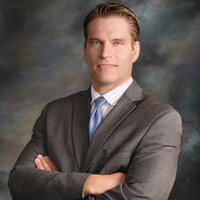 Kalamazoo Felony Lawyers, Michigan
Kalamazoo Felony Lawyers, Michigan
Sponsored Law Firm
-
 x
x

Click For More Info:
-
Goldman & Associates
615 Griswold St. Suite 1325 Detroit, MI 48226» view mapProbate Over 30 Years Experience
Accessibility, responsiveness, and personal commitment is our approach to client representation.
800-797-8031
Not enough matches for Kalamazoo Felony lawyer.
Below are all Kalamazoo Criminal lawyers.
Sponsored Lawyers
1-10 of 45 matches
Accident & Injury, Real Estate, Criminal, Estate, Elder Law
Shaun Willis, along with his brother Michael, is a co-founder and Partner of Willis Law. Willis Law has offices in Kalamazoo, Grand Rapids, and Paw Paw. For more than 14 years, Mr. Willis has focused on assisting clients in litigation, with emphasis on business, real estate, and construction litigation. He is admitted to practice in the State Courts of Michigan, Federal Courts in the Eastern and Western District of Michigan, and the Michigan State Supreme Court. Before the formation of Willis Law, he was sole practitioner of The Law Office of Shaun Patrick Willis, worked in the Kalamazoo County Office of the Prosecuting Attorney and at Howard & Howard Attorneys, PC. Shaun received a J.D. from Thomas Cooley Law School. He graduated with a B.S. in Aviation Flight Science from Western Michigan University. He is a licensed commercial pilot with a multi-engine rating, avid hunter, and teaches the legal portion of CCW classes. He and his wife, Corrina Maria Willis, are involved in the Kalamazoo community, attend Valley Family Church, and Corrina is Past President of the Lawyers Auxiliary Board. They have three daughters, Maria, Francesca, and Lucy and three sons, Patrick, Christopher, and Walter. Willis Law dedicates its practice to God, the Lord Jesus Christ, and the founders' fallen brother, Corporal Christopher Kelly Willis.
(more)Criminal, Misdemeanor, Felony, Child Custody, Adoption
Don was born and raised in Kalamazoo, Michigan and graduated from Kalamazoo Christian High School in 1989. He attended Hope College in Holland, Michigan and graduated with a BA in Psychology/Sociology in 1993. In 1994, Don went to work as a child abuse investigator with the Michigan Department of Social Services, where he assisted hundreds of abused and neglected children and their families. In 2000, Don was promoted to management, making him the youngest Children's Protective Services Supervisor in Michigan at that time. In 2002, Don graduated magna cum laude and earned his juris doctorate degree from Michigan State University - Detroit College of Law in East Lansing, Michigan. In 2006, he went to work with the Kalamazoo County Prosecutor's Office, where he prosecuted felonies and misdemeanors in district and circuit courts. He also handled mental health commitment hearings in the Kalamazoo County Probate Court and the Kalamazoo Psychiatric Hospital. When out of the office, Don enjoys spending time with his wife, Mindie, and two children. Don is a coach for his children's soccer, basketball and baseball teams and is a Sunday School teacher at Haven Church in Kalamazoo. Don is also involved in the Kalamazoo County Bar Association as the co-chair of the Young Lawyer's Section. He also enjoys working out and practicing Brazilian Jiu-Jitsu.
(more)


 Akiva Goldman Detroit, MI
Akiva Goldman Detroit, MI AboutGoldman & Associates
AboutGoldman & Associates Practice AreasExpertise
Practice AreasExpertise


